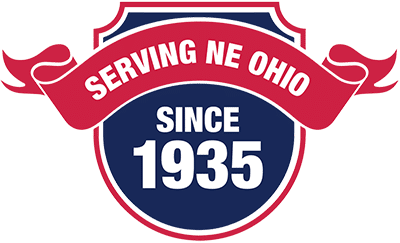How You Can Prevent Plumbing Leaks, Clogs and Flooding

You count on your home’s plumbing system to operate efficiently, but hidden issues can hide everywhere. Fortunately, you can avoid clogs, leaks and even flooding with a little routine care. Here’s the way to keep your water running and your stress in check.
Learn to Recognize and Avoid Leaks
Most of your home system of plumbing pipes and fixtures is concealed, so water issues often go on for weeks until they create the potential for water damage. Regularly checking for leaks can help you catch issues early. Here are some ideas for you to try:
- Look under the sink for signs of damp spots, wood rot or mold.
- Be on the lookout for small leaks in the toilets by squeezing some drops of food coloring to the tank. If the color shows up in the bowl after 30 minutes without flushing, you’ve got a leak.
- Examine around and behind your appliances, including the dishwasher or washing machine, for signs of water damage or leaks.
- Have a professional perform a water meter test.
- To start, shut off all water in your home via the water main.
- Then, head outside to read the water meter. Check it again in two hours, being careful not to use any water before the second reading.
- If the reading goes up, you know there’s a leak somewhere.
Employ Mesh Strainers
A simple way to prevent clogs is to place mesh strainers over your kitchen sinks and bathroom drains. They catch hair, pieces of soap, old toothpaste and other debris as water goes down the drain. these strainers to keep your drains flowing freely.
Know What Not to Flush
Toilets are designed to dispose of human waste and toilet paper. Here’s what you should never flush:
- Wet wipes
- Paper towels
- Cotton swabs and cotton balls
- Feminine hygiene products
- Baby diapers
- Dental floss
- Expired medication
Be Aware of What Not to Rinse
Many kitchen sinks may be equipped with a garbage disposal, but certain food items still belong in the trash can or compost heapp, not dumped into the drain, including:
- Grease, oil and cooking fat
- Stringy foods like corn husks and celery
- Old food like steamed rice or coffee grounds
- Tough pieces of food like fruit pits and animal bones
- Anything that isn’t edible. Silverware and similar items may end up in the disposal and cause damage when you turn it on.
Invest in a Sump Pump
Installing a sump pump will go a long way toward preventing floods, especially in climates prone to heavy rainfall. This device extracts water that collects in its sump basin, usually found in the basement, and drains it away from the house. For homes that already have a sump pump, test it regularly by adding some water into the pit. As long as the pump activates and the pit drains, it’s working fine. If it isn’t draining properly, you have time to call a professional to repair your sump pump before the next big storm.
Find the Main Shutoff Valve
Being familiar with your plumbing system means knowing the location of your main water shutoff valve. This valve controls water entering your home, so knowing where it is means you can turn it off quickly in a plumbing emergency. It’s also wise to turn off this valve before going away for an extended period. Common locations for the main shutoff valve include the basement, near the water heater, in a utility closet or outside the home under the ground.
Do Everything You Can to Avoid Frozen Pipes
In colder climates, helping protect vulnerable pipes is vital if you want to avoid freezing and bursting. Here are some professional recommendations:
- Insulate pipes in purely functional/utility spaces like the basement, garage or attic using foam tubing or heating tape.
- Unhook garden hoses from outdoor faucets all through the winter to prevent ice from forming inside the pipes.
- Keep your cabinet doors under the sink open during freezing temperatures to keep warm air circulating around the pipes.
Install a Backflow Valve
Another helpful plumbing tip is to set up a backflow valve in the basement floor drain to prevent sewage from flowing backward into their homes during heavy rainfall. A professional plumber can fit this effective defense against sewage flowing back into the house.
Set Up Flood Alarms
Similar to how smoke alarms are a big part of good fire safety, flood alarms help prevent water damage. These electric or battery-operated devices detect water at the earliest stages of flooding or leaks, sounding an alarm to inform you. For enhanced protection, include smart flood alarms into your home security system. This alerts you on your phone as soon as water has been detected, allowing you to resolve leaking pipes before it leads to significant damage.
Work with a Reliable Plumber
While you can carry out all sorts of preventive steps yourself to stop clogs, leaks and flood damage, there are situations where you need Expert local plumbers to keep things flowing smoothly. That’s where Geisel Heating, Air Conditioning & Plumbing, Inc. can help. We work with some of the best plumbers serving U.S. homes from coast to coast with a 100% satisfaction guarantee.
If you’re not completely thrilled with your level of service up to a year later, we will do everything we can to make it right. This commitment shows how we ensure a complete sense of comfort in your life. For some of the best plumbing service that exceeds expectations, please contact us today.


